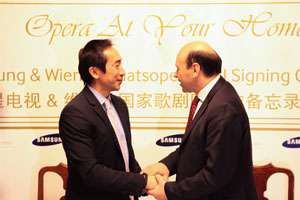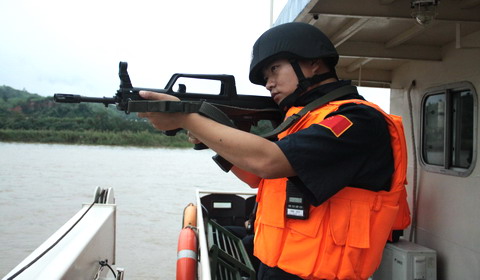Taiwan sums up 2013 with an appetite for the word 'fake'
Updated: 2013-12-13 01:41
By An baijie (China Daily)
|
||||||||
Taiwan's choice for "word of the year" in 2013, jia (fake), reflects the fact that residents of the island have been worried about food safety in the light of a string of scandals, analysts said.
The Taiwan Word of the Year, which is co-hosted by the Far East Group and United Daily News, was announced on Monday, chosen from among 57 candidates, including hei (black) and luan (chaos), after a week-long vote.
Fan Liqing, spokeswoman for the State Council's Taiwan Affairs Office, said this year's choice shows that Taiwan people are concerned about food safety after a number of leading food companies were involved in scandals.
Fan made the remarks during a regular news conference in Beijing on Wednesday.
A total of 17,790 people, including professors and media workers, voted for jia, with the second choice hei (black) gaining only 3,861 votes, according to China News Service.
A total of 62,172 votes were registered overall, CNS said.
The Taiwan Word of the Year event started six years ago. In 2012, the winner was you (worrisome), while in 2011 it was zan (awesome). The candidate words are selected by a group of social experts and then submitted to a vote over cell phones.
This year's word reflects the numerous food safety scandals — at least 17 — that have unfolded in Taiwan up to November.
In one case, about 90 percent of the oil products from Chang Chi Foodstuff Factory Co, a major food company in Taiwan, were tainted, provoking concerns over potential liver and kidney damage among consumers, Xinhua News Agency reported.
The mainland imported 4,181 liters of edible oil from the company in three batches this year via Fujian province. A total of 2,016 liters were recalled or pulled off shelves in mid-November, according to the local inspection and quarantine authority.
On November 13, Fan urged Taiwan authorities and companies to properly handle follow-up issues after tainted cooking oil products from the island entered the mainland.
Many shoppers told the Taipei Times that they did not trust Taiwan food brands as much as they used to after plasticizers were found in emulsifying additives used in products ranging from sports drinks to fruit jelly.
Regarded as a cheap substitute for palm oil, plasticizers are banned in foodstuffs and can lead to health problems for children.
On October 23, Taiwan leader Ma Ying-jeou vowed to strengthen the inspection of food and beverage manufacturers and severely punish those whose food products were tainted. Ma also required the health authorities to hold a food safety conference in November to address the issue.
Chen Xiancai, a professor at the Taiwan Research Institute of Xiamen University, said that scandals involving Taiwan food companies will harm cross-Straits economic and trade exchanges.
Consumers on the mainland have become more concerned over food safety issues in recent years and the food producers should improve quality to regain their trust, he said.
anbaijie@chinadaily.com.cn

 Harvard reopens after bomb scare
Harvard reopens after bomb scare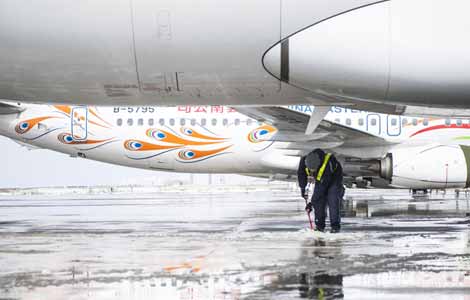
 Snowstorms cause chaos for travelers in Yunnan
Snowstorms cause chaos for travelers in Yunnan
 Kerry offers Hanoi aid in maritime dispute
Kerry offers Hanoi aid in maritime dispute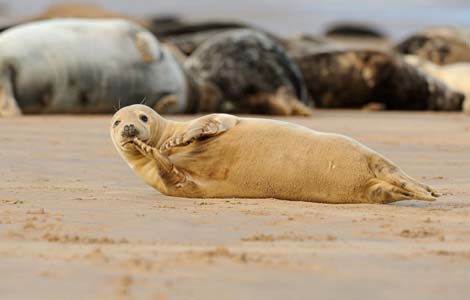
 Cuddly seal enjoys some me time
Cuddly seal enjoys some me time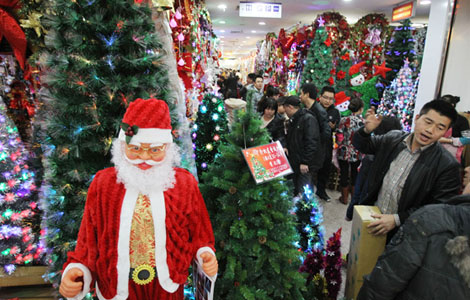
 Shoppers dropping department stores
Shoppers dropping department stores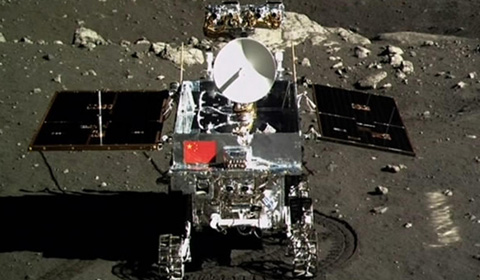
 Moon rover, lander photograph each other
Moon rover, lander photograph each other
 Snow hits SW China's Yunnan province
Snow hits SW China's Yunnan province
 With a hole in its heart, South Africa buries Mandela
With a hole in its heart, South Africa buries Mandela
Most Viewed
Editor's Picks

|

|

|

|

|

|
Today's Top News
Continuity in DPRK policies expected
China keen on natural gas
China outlines diplomatic priorities for 2014
China's US debt holdings pass $1.3 trillion
Clashes with US can be avoided: FM
Kerry offers Hanoi aid in dispute
14 terrorists killed in Xinjiang
Warehouse fire extinguished
US Weekly

|

|

